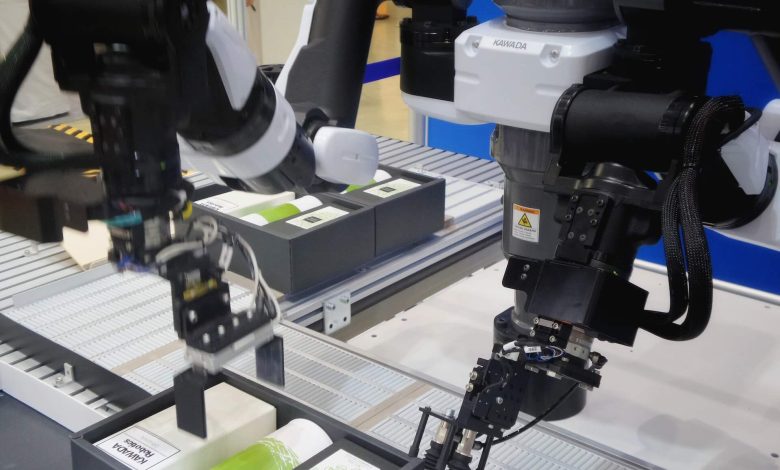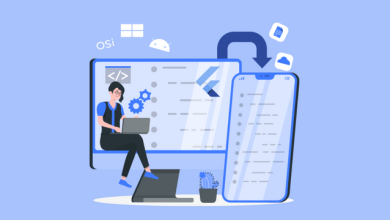7 Examples of Artificial Intelligence Transforming Business

Artificial intelligence (AI) isn’t just a future concept that we’re building out; it’s here, and it’s currently changing the way businesses around the world operate. In fact, AI has begun to transform some of the largest and most successful companies in the world, from tech behemoths to retail stores to health care organizations and more.
Artificial intelligence (AI) has been around for decades, but only in the last few years have we started to see the technology reach its full potential. Businesses are using AI to predict customer needs and behaviors, plan marketing strategies, and automate operations like never before. Here are some of the ways that businesses are using AI today, and how you can use this technology in your own enterprise.
What is Artificial Intelligence?
Artificial Intelligence is any intelligence demonstrated by a machine, in contrast to the natural intelligence displayed by humans and other animals. John McCarthy, who coined the term in 1955, defines it as the science and engineering of making intelligent machines. As an academic discipline with its roots in cognitive science, artificial intelligence is not only concerned with how computers can think (the field of robotics), but also how computers can be made to seem like they are thinking.
Here are Top 7 Examples of Artificial Intelligence Transforming Business
1) Sales and business development
Sales and business development are being completely revolutionized by the use of artificial intelligence. AI-powered bots can help in sales by understanding and empathizing with a customer’s needs, selling products to customers as if they were a human, and more. Meanwhile, business development is benefitting from algorithms that are able to do intelligent searches for and find companies or individuals who share the same business objectives or interest.
2) Demand and Supply
Demand and Supply are integral to the process of creating any business. If there is no demand for your product, you will not be able to create a profitable business. Likewise, if there is no supply for your product, it will be difficult for you to make your own product.
In addition to these two pivotal factors of an entrepreneurial endeavor, artificial intelligence can help optimize the process and find potential opportunities in ways that humans would have a difficult time following through on their own.
3) Back-office tasks
Back-office tasks are often mundane and not the best use of human intelligence. Artificial intelligence will help with all types of back-office functions by automating some parts of those tasks while also making business processes more efficient, accurate, and scalable.
Artificial intelligence is also well suited to back-office functions like customer service and maintenance. With chatbots and virtual assistants, businesses can shift their focus from answering repetitive questions to handling exceptions when they do arise. On top of being more scalable, AI-driven customer support is faster than human-staffed teams and can give customers a better experience as a result.
Finally, artificial intelligence is great for maintenance tasks because it takes care of process flows automatically without any manual intervention required.
4) Cash-flow forecasting
Cash-flow forecasting is the practice of projecting how much cash will come in to your business and how much cash will go out over a specific period of time. If you have steady incoming revenue and predictable outgoing expenses, forecasting should be easy; if not, then forecasting is more complicated.
5) Document and identity verification
The use of artificial intelligence for document and identity verification allows the process to be completed in a fraction of the time that it would take for a human. An example is Quotient’s Onegini which verifies identity by asking a series of questions.
Such technology could even work in conjunction with facial recognition to simplify the process even more. For example, Dun & Bradstreet has created a mobile app which helps verify personal information quickly and easily.
6) Healthcare
AI is revolutionizing the healthcare industry by providing support to doctors and nurses through high-tech tools. As a result, AI can help to make waiting times more bearable and improve overall efficiency. The introduction of AI also means less work for busy professionals who are able to delegate tedious tasks. The field is only continuing to grow with more advancements in machine learning.
7) Finance
Finance, in particular, has seen some major developments from AI. Machine learning algorithms have begun to calculate the probability that someone will default on a loan. Even better, the data sets for this analysis are so large that the machine will always be able to find patterns. And predictors that would elude any human at this scale. Human lenders can then use these findings to make informed decisions about future borrowers.
Conclusion
The future is coming and we will be working alongside AI in ways that many people thought was unimaginable. AI is already transforming our society, economy, and businesses by providing artificial intelligence solutions to difficult problems, so the best way to prepare for the coming wave of change is to think ahead and invest in it now.
AI is one of the many technologies that can change the way we do business. Although it is still in its infancy, we will soon see a time when this technology not only helps make existing jobs easier, but also creates new ones. When this happens, our interactions with customers and businesses will be vastly different than they are today.
Read Also:




